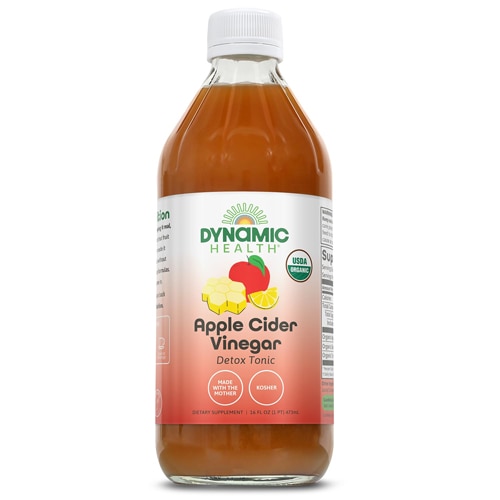If you are only using vinegar as a salad dressing, you may be missing out on a surprisingly efficacious health partner. It may sound a little hokey. Sure, apple cider vinegar (ACV) is a classic folk remedy—something your grandmother (or in my case, my husband’s grandmother) swore by. But there may be some truth to the claims that apple cider vinegar is good for everything, warts and all. While there is surprisingly little research about using vinegar for therapeutic health purposes online, there’s enough anecdotal evidence—and a few scientific studies—that suggest it’s worth exploring.
What kind of vinegar works best?
It’s important to use raw, unfiltered, unpasteurized apple cider vinegar. Look for vinegars that include the “mother”—strands of proteins, enzymes and friendly bacteria that give the product a murky appearance. Real apple cider vinegar is rich in valuable minerals and trace elements, pectin, acetic acid, malic acid, live enzymes, amino acids and many other beneficial nutrients.
It’s worth keeping (ACV) handy in your pantry as a first line of defense against common issues such as discomfort associated with colds, hiccups and tummy troubles. Here are a few of the many ways that ACV can offer benefits.
Digestive comfort
If you have digestive woes, it’s worth giving apple cider vinegar a try. Your stomach may not have enough acid or you may eat foods low in acidity, resulting in acid reflux. Experts believe that ACV mimics the acid level of your stomach to help you digest foods properly. It can also soothe the entire gastrointestinal tract, helping to ease temporary stomach cramps, bloating and gas. Additionally, ACV can also be used as a mild laxative to stimulate peristalsis for occasional constipation.†
Take one or two tablespoon ACV before each meal. You can take it straight or mix into water or a clear juice such as apple juice.
Blood sugar levels
Sipping on apple cider vinegar before a meal may also help support healthy blood sugar. Research published in the Journal of Functional Foods showed that study participants who drank a tablespoon of ACV mixed with 8 ounces of water prior to eating had lower blood glucose levels compared to participants who didn’t consume vinegar.†
Lead study author Carol Johnston, PhD, associate director of the School of Nutrition and Health Promotion at Arizona State University, theorizes that acetic acid, the main component in vinegar, may interfere with the body’s ability to digest starch. The less starch you digest means less is being broken down into calories in the bloodstream. This might have a subtle effect on weight loss, which may be why there are so many claims about ACV as a helpful weight-loss adjunct.†
Bright complexion
The alpha-hydroxy acids and acetic acid in ACV may help stimulate circulation and minimize pores. When vinegar is used as a toner, it helps skin (typically acidic) find a good pH—the ideal balance between dry and oily. Mix together one tablespoon apple cider vinegar and two cups water. Moisten a cotton ball, and swipe the mixture over a clean, dry face. No need to rinse off—the pungent smell will dissipate quickly.
ACV is a great resource, but don’t overdose on it with expectations of a magic bullet. In fact, taking too much ACV can pose problems for your throat and teeth (it can erode too much enamel), and/or adversely affect your potassium levels.
†These statements have not been evaluated by the FDA. These products are not intended to diagnose, treat, cure or prevent any disease.




